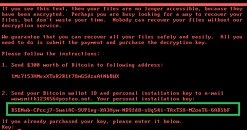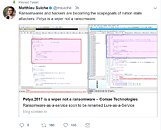
Yet Another Speculative Malfunction: Intel Reveals New Side-Channel Attack, Advises Disabling Hyper-Threading Below 8th, 9th Gen CPUs
Ouch doesn't even begin to describe how much that headline hurt. As far as speculative execution goes, it's been well covered by now, but here's a refresher. Speculative execution essentially means that your CPU tries to think ahead of time on what data may or may not be needed, and processes it before it knows it's needed. The objective is to take advantage of concurrency in the CPU design, keeping processing units that would otherwise be left idle to process and deliver results on the off-chance that they are indeed required by the system: and when they are called for, the CPU saves time by not having to process them on the fly and already having them available.
The flaws have been announced by Intel in coordination with Austrian university TU Graz, Vrije Universiteit Amsterdam, the University of Michigan, the University of Adelaide, KU Leuven in Belgium, Worcester Polytechnic Institute, Saarland University in Germany and security firms Cyberus, BitDefender, Qihoo360 and Oracle. While some of the parties involved have named the four identified flaws with names such as "ZombieLoad", "Fallout", and RIDL, or "Rogue In-Flight Data Load", Intel is using the PEGI-13 "Microarchitectural Data Sampling (MDS)" name.
The flaws have been announced by Intel in coordination with Austrian university TU Graz, Vrije Universiteit Amsterdam, the University of Michigan, the University of Adelaide, KU Leuven in Belgium, Worcester Polytechnic Institute, Saarland University in Germany and security firms Cyberus, BitDefender, Qihoo360 and Oracle. While some of the parties involved have named the four identified flaws with names such as "ZombieLoad", "Fallout", and RIDL, or "Rogue In-Flight Data Load", Intel is using the PEGI-13 "Microarchitectural Data Sampling (MDS)" name.









































